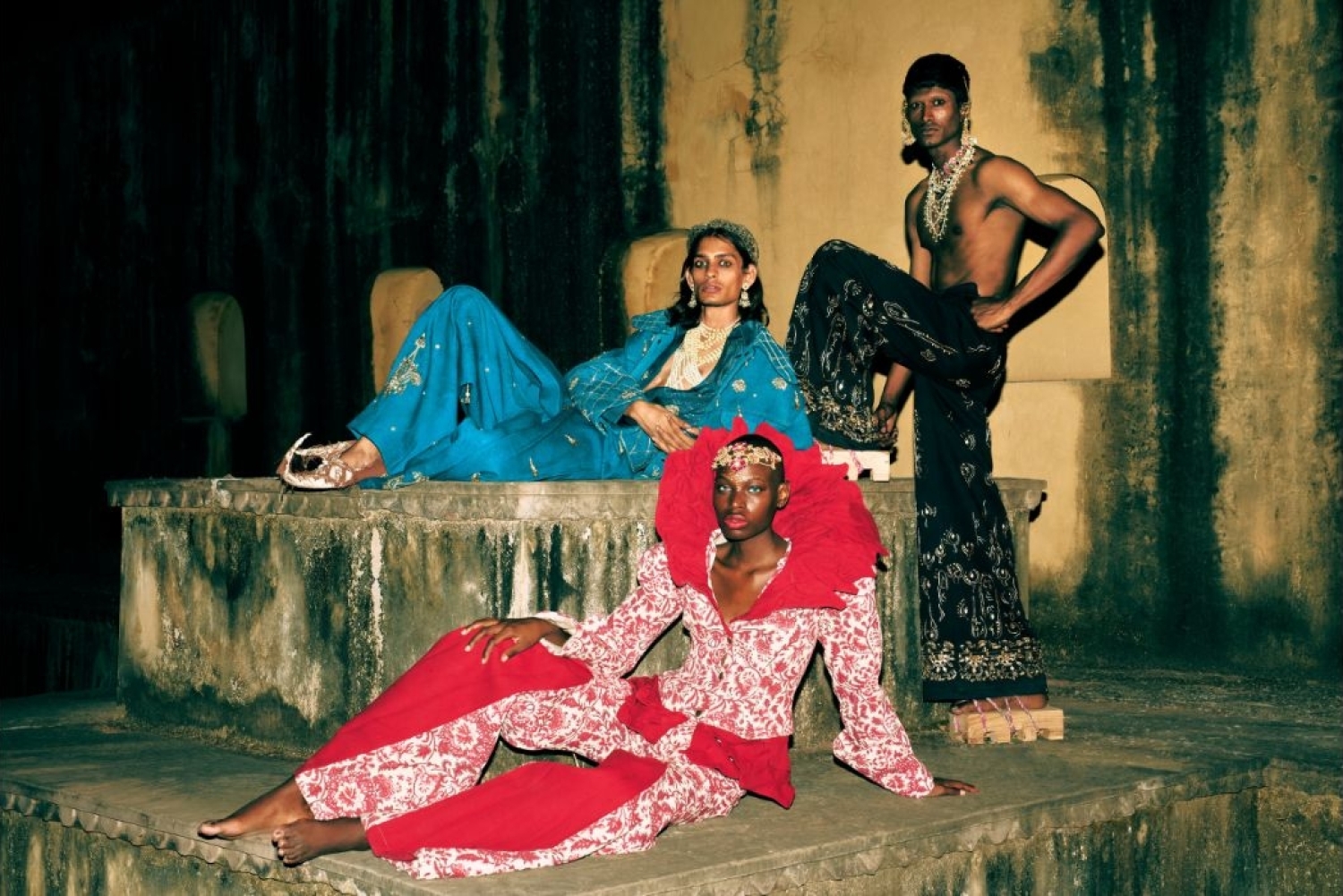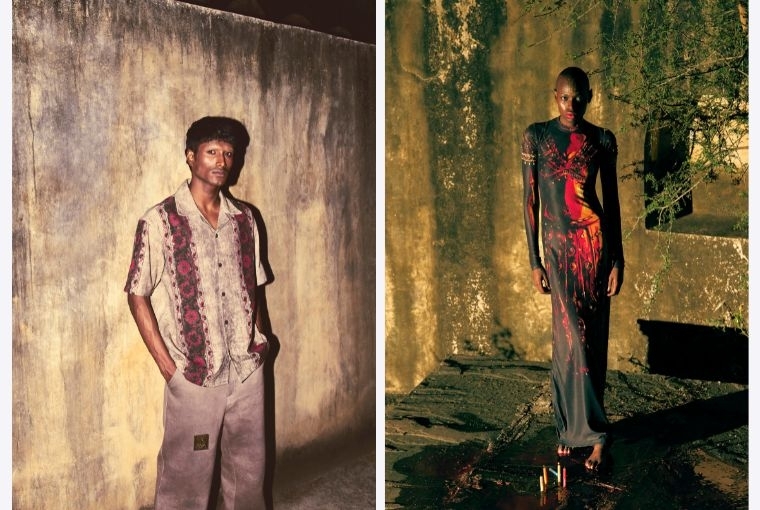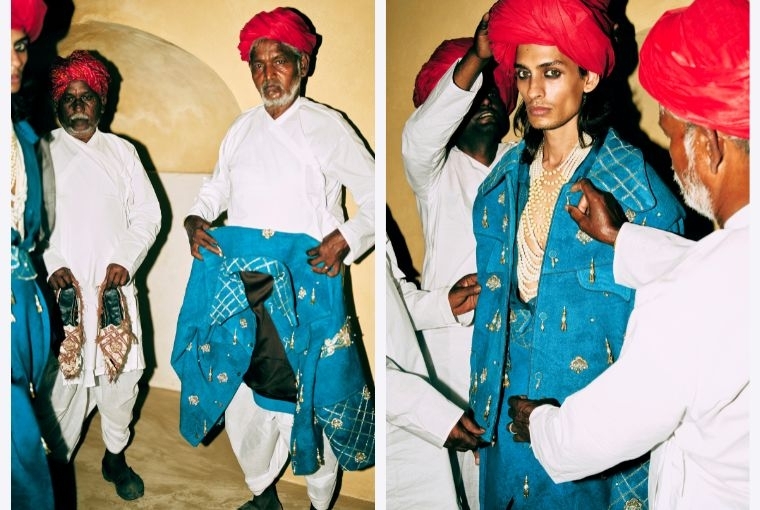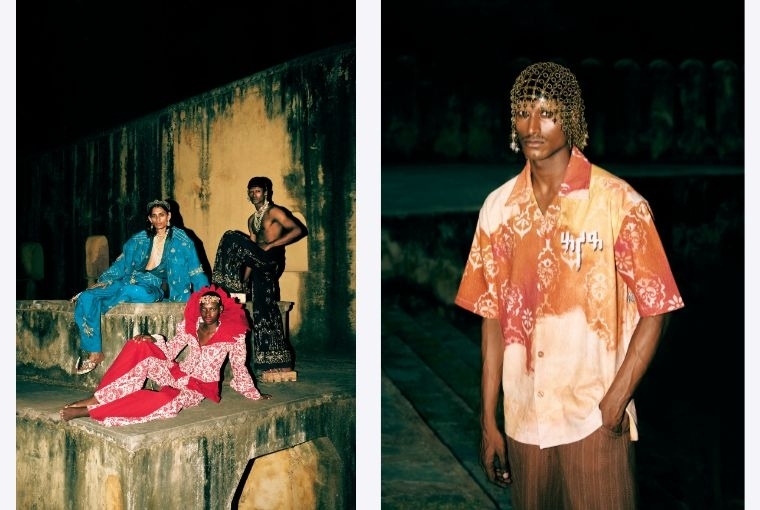

Farak, founded in 2021 in the historic city of Jaipur, was born from a vision to fuse centuries-old Indian craftsmanship with contemporary street fashion. The brand’s very name, farak, means difference– a nod to its mission of making a difference. Farak’s creations, ranging from intricately embroidered varsity jackets to block-printed hoodies, exude a cool, urban flair at first glance. Look closer; each piece is grounded firmly in heritage, featuring hand embroidery, traditional weaving or age-old block printing techniques in its very thread.
From the outset, Farak set out to slow fashion down and shine a spotlight on India’s artisans. Rather than churning out mass-produced trends, the label works directly with generational craftspeople. As founder and creative director, Rishabh Kumar puts it, ‘every collection is a tale of artisans, heritage, and how craftsmanship has shaped itself over centuries,’ with each garment carrying ‘history, expertise, and soul’ invested by its makers. This storytelling-through-fashion approach has been central to Farak’s ethos from day one.

Rishabh’s life journey mirrors the bridge Farak builds between old and new. He grew up in the small town of Churu on the edge of the Thar desert, surrounded by vibrant textiles and folk-art traditions. As a teenager, his family moved to Dubai – trading Rajasthan’s sandstone havelis for a skyline of glass towers. The exposure to a modern, cosmopolitan culture in Dubai broadened his perspective even as it deepened his appreciation for his roots. Immersed in global streetwear and music culture, Rishabh began to dream of a label that could bring the richness of Indian craft to that urban arena.
A few years later, he returned to India determined to create something different, true to the brand’s very name. Jaipur became his launchpad, chosen for its legacy of craftsmanship. Building a fashion brand from scratch came with challenges: persuading traditional artisans to experiment with streetwear, sourcing authentic materials, and funding production all required perseverance. Many craftsmen were initially skeptical that their ornate handiwork could live on a bomber jacket or hoodie. But Rishabh’s passion was infectious. Gradually, block printers, weavers and embroiderers came on board, intrigued by his vision of blending heritage with hip-hop style. By the time Farak’s debut collection launched in late 2021, it carried not just Rishabh’s design imprint but the proud handiwork of the artisans he had brought along.

Music, especially hip-hop, played a key role in shaping Farak’s fusion of traditional craft with modern style. In Dubai, Rishabh had fallen in love with urban street fashion and noticed how musicians use style to tell their stories. That sparked a thought: why not make Indian craftsmanship part of that narrative? The rebellious energy of hip-hop inspired him to reimagine classic Rajasthani embroidery and textiles in a streetwear context, bridging the gap between a centuries-old art and a contemporary beat.
At the heart of Farak is a commitment to craftsmanship and storytelling. Rishabh treats artisans not just as suppliers but as creative partners, believing every traditional technique carries a narrative of its own. Farak has built a reputation for spotlighting ‘the hands behind the heritage,’ collaborating with award-winning artisans whose legacies stretch back generations. By working hand-in-hand with master weavers, printers and embroiderers across India, Farak ensures that age-old skills are not only preserved but given new life. The brand prioritizes small-batch, handmade production – every stitch and dye have intention. This slow-fashion approach means garments often come with the name of the craft community or region that inspired them.

Farak’s Fall/Winter 2023 collection, Karamkaar, was a direct tribute to the unsung artisans of India. The name itself combines the Hindi words karam (work) and kaar (doer), essentially meaning ‘the one who works’ – the craftsperson. True to its title, the collection’s guiding belief was that ‘no work is big or small,’ and it set out to give ‘centre stage to the craft that [artisans] have been practising for centuries’
In summer 2025, Farak brought forth Folklore of India, a collection that was inspired by the eerie Indian ghost stories coming from regional folk narratives. ‘Growing up, we have all heard stories… Especially ghost stories… We simply compiled them together and created this collection, which everyone can relate to,’ Rishabh says of the nostalgic inspiration behind Folklore. Indeed, the collection took childhood tales – from whispers of chudails (witches) under banyan trees to local legends – and wove them into wearable art.
Folklore of India also saw Farak expand its design language. For the first time, the brand introduced a range of women’s silhouettes to better tell these stories. High-collared jackets, modern cholis were decorated with hand-block prints, kantha stitches and zari embroidery, bringing heritage techniques to the table with edgy styling. Rishabh felt that women’s wear offered ‘more room to play with silhouettes’ for storytelling, and the result was both evocative and empowering. The collection not only won praise for its hauntingly beautiful concept but also resonated with a young audience who saw their grandmother’s folklore come alive in fashion. It opened up Farak to more female fans and demonstrated how deeply cultural nostalgia can connect through design.
Rishabh remains true to his mission of storytelling and empowerment. He continues to work hand-in-hand with artisans, ensuring that each Farak collection is not just apparel but ‘history, art, and culture sewn to perfection and worn with pride’ As he reflects on the path from Churu to Jaipur and beyond, it’s clear that Farak’s journey is about more than clothes – it’s about honoring where we come from while embracing who we can become.
Words Harita Odedara
27.05.2025